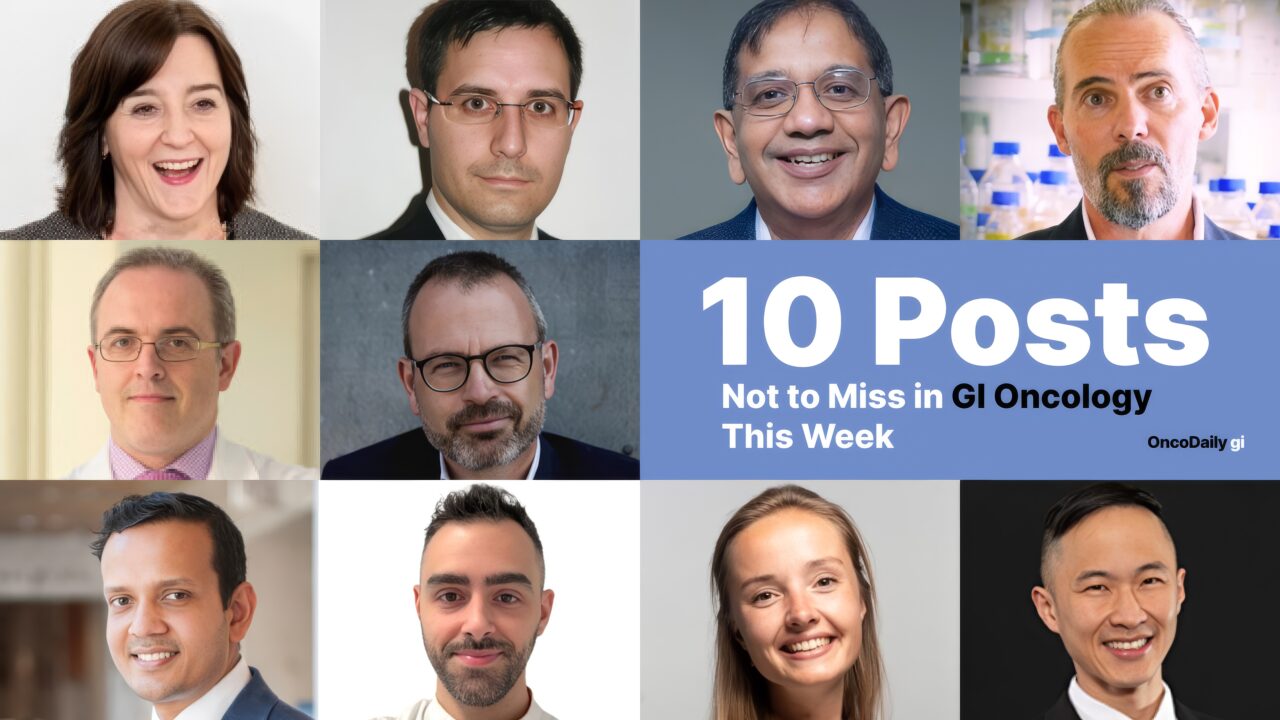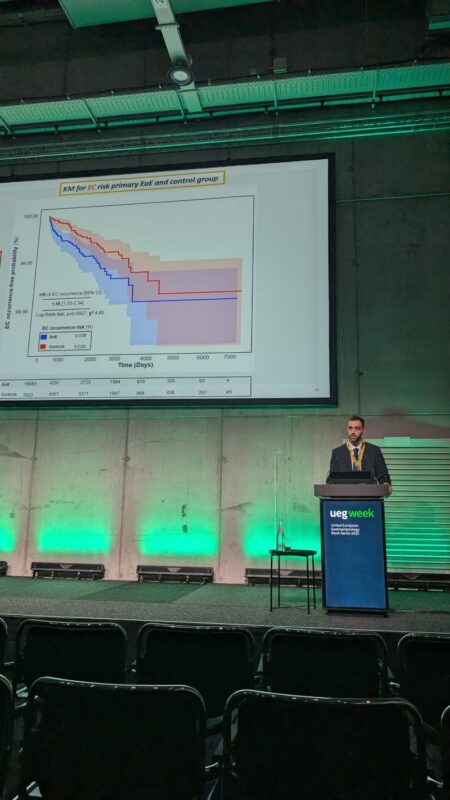At OncoDaily GI, we spotlight the discoveries transforming GI oncology — from precision biomarkers to equitable cancer care. The second week of October delivers breakthroughs spanning colorectal, hepatobiliary, pancreatic, and esophageal cancers, reflecting how science and collaboration continue to reshape the field.
New evidence revisits curative surgery in recurrent colon cancer and deepens understanding of colorectal cancer subtypes. Advances in pancreatic oncology highlight biomarker-guided immunotherapy, transcriptomic-driven chemotherapy, and innovative early-detection models. Economic data in hepatocellular carcinoma strengthen value-based decision-making, while a new European trial expands targeted options for KRAS-mutant colorectal disease.
This week also underscores equity and integration — with a global meta-analysis linking socioeconomic status to cancer survival, and UEG Week 2025 spotlighting the convergence of motility, inflammation, and malignancy in GI oncology. Together, these updates illustrate a discipline evolving toward precision, accessibility, and truly multidisciplinary progress.
Eva Rademaker, MD – PhD Candidate, Colorectal Surgery, Isala / Erasmus MC
“Happy to announce that our article ‘Treatment with curative intent for locoregional recurrent colon cancer – a systematic review’ is now published in BMC Surgery!
Locoregional recurrence of colon cancer (LRCC) is not a clearly defined clinical problem, but with reported incidences between 4–11.5%, it represents a significant clinical problem.
This study aimed to review the literature on intentional curative treatment of LRCC and related long-term outcomes.
Two consecutive population-based studies reported a proportion of curative intended treatment of 22% and 81.3%. Among the selected cohort studies and pooled cases series, surgical resection was the mainstay of curative treatment, with only a minority undergoing either neo-adjuvant and/or adjuvant treatment.
Survival rates after curative LRCC resection varied substantially between studies, with reported 5-year overall survival ranging from 9% to 90%.
Literature on treatment of patients with LRCC is scarce and difficult to interpret. Nevertheless, existing studies suggest that treatment with curative intent may lead to favorable long-term outcomes in carefully selected patients.”
José Perea García, MD, PhD – Colorectal Surgeon, Associate Professor, Researcher; Coordinator of GEOCODE and SECOC Consortia
“Different subtypes of CRC, differential phenotypes:
IBD-CRC was associated with a younger mean age at diagnosis, higher risk of mucinous cancers, emergency presentation, and synchronous neoplasia compared to S-CRC.
EOCRC had a higher risk of being diagnosed at stage IV and of mucinous tumours versus LOCRC.”
Alberto Barchi, MD – Specialist in Gastroenterology and Digestive Endoscopy; Consultant Gastroenterologist, IRCCS San Raffaele Hospital; PhD Candidate in Molecular Medicine
“UEGWeek 2025 in Berlin, just came to an end!
Always great to connect with friends and peers all over the world to discuss about the latest #advancements in GI motility and eosinophilic esophagitis.Had the pleasure to present the early results of the ESCAPE study (EoE and Cancer) and the RECAP study (achalasia and cancer) in two enriching oral sessions with some of the great experts on esophageal diseases and contributing with posters on GERD and gastroparesis.
An heartfelt thanks to my mentors and friends supporting me everyday Arjan Bredenoord · Gwen Masclee · Edoardo Savarino · Milli Gupta · Prof. Silvio Danese · Sandro Passaretti · Francesca Rusconi PhD · Federica Ungaro · Luca Massimino · Edoardo Vespa · Francesco Vito Mandarino · Antonio Ventimiglia · Marina Girelli · Niek Warringa · Giuseppe Dell’Anna.It was great to see many of my colleagues from team HSR Ospedale San Raffaele and from Università Vita-Salute San Raffaele shining with beautiful presentations and moderated posters on several GI issues and translational research Edoardo Vespa · Francesco Vito Mandarino · Giuseppe Dell’Anna · Gabriele Altieri · Sabrina Nicolò · Carmela Errico · Sarah Bencardino · Ilaria Faggiani · Fabrizio Fanizzi.
It was also enriching to catch up with everyone (mentors and good friends) from the EoE world attending the EUREOS meeting EUREOS.”
Søren Bregenholt, PhD – Chief Executive Officer, Alligator Bioscience AB
“FUNCTIONAL EVIDENSE: Yesterday Alligator published biomarker data for from the OPTIMIZE-1 phase 2 study, linking the effect of mitazalimab directly to long-term clinical benefits and describing strategies for future patient stratification.
In brief, the paper published in Cell Reports Medicine by Cell Press, describes the identification of a baseline tumor-intrinsic fibrotic gene signature associated with improved overall survival. Moreover, it shows that that patients with objective clinical responses displayed intratumoral mitazalimab-induced immune activation supporting mitazalimab’s contribution to clinical outcomes, and that mitazalimab-induced increases in circulating activated immune cells correlated with better clinical outcomes.
These data further support the rational for developing mitazalimab in first line metastatic pancreatic cancer and also in other solid tumors like biliary tract cancer and beyond.”
Carla Rognoni, PhD – SDA Researcher, SDA Bocconi School of Management, Bocconi University
“I’m delighted to share my latest publication “Cost–Benefit Analysis of Trans-Arterial Radio-Embolization with Y-90 Glass Microspheres Versus Drug-Eluting Bead Trans-Arterial Chemo-Embolization in Patients with Hepatocellular Carcinoma in Italy” co-authored with Sherry Bhoori, Laura Crocetti, Cristina Mosconi, Paolo Fonio, Marco Angelo Bongini, Elena Bozzi, Maurizia Brunetto, Alberta Cappelli, CHIESA CARLO, Roberto Cioni, Fernando Di Gregorio, Andrea Doriguzzi, Marco Maccauro, Gianluca Masi, Massimo Sponza, carlo spreafico, Alessandro Vit and Rosanna Tarricone
This Italian hospital–perspective analysis compared Y-90 glass microsphere Trans-Arterial Radio-Embolization (TARE) with Drug-Eluting Bead Trans-Arterial Chemo-Embolization (DEB-TACE) for early/intermediate hepatocellular carcinoma (HCC) ineligible for surgery/ablation, using a 2-year partitioned survival model and data from the TRACE study plus five high-volume centers.
TARE improved survival (1.62–1.82 vs 1.33 life-years) at slightly higher costs (~€32.4–32.9k vs €27.7k).
With a €50,000/LY willingness-to-pay, TARE yielded positive incremental net monetary benefits (€9.7k with standard dosimetry; €19.4k with personalized dosimetry), demonstrating cost-effectiveness.
Overall, TARE provides greater value for money than DEB-TACE, supporting its broader use, especially with personalized dosimetry.”
Anirban Maitra, MBBS – Laura and Isaac Perlmutter Professor of Pathology; Associate Director of Translational Research, Perlmutter Cancer Center
“In the Journal of the National Cancer Institute (JNCI) we introduce a novel approach for systematic earlier detection of sporadic PancreaticCancer:
HEURISKANCE
This is distinct from longitudinal surveillance in high risk individuals & represents opportunistic earlier detection of a lethal cancer.”
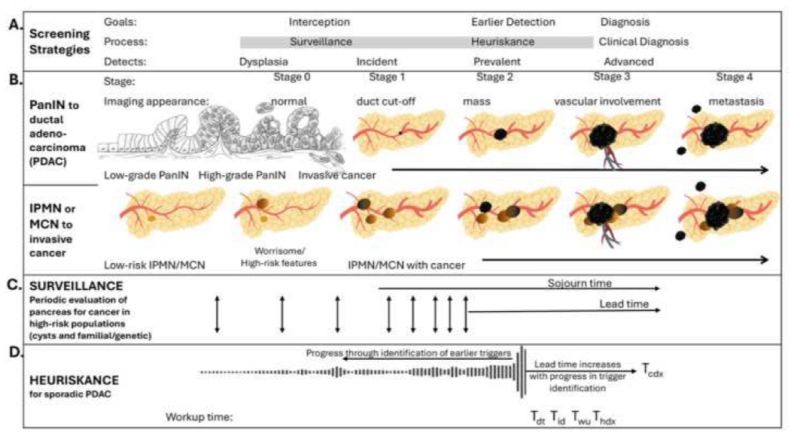
David Tougeron, MD, PhD – Professor of Medical Oncology, Poitiers University Hospital
“The first inclusion in the PRODIGE 107-ENGIC 01-COLOSOTO trial is done by Italy. Thanks to italian investigators !
COLOSOTO is the first European ENGIC clinical trial, promoted by the FFCD, evaluating the combination of 5-fluorouracil, Panitumumab (anti-EGFR) and Sotorasib (KRAS G12C inhibitor) as first-line treatment in patients with advanced KRAS G12C colorectal adenocarcinoma who are who are not eligible for double/triple chemotherapy.
COLOSOTO is a European collaboration, with the involvement of recognised cooperative group FFCD (France), TTD (Spain), GONO (Italy), AIO and IKF (Germany).”
Siddhartha Yadav, MD – Breast and Gynecologic Medical Oncologist; Associate Professor of Oncology
“Some publications are special — not just for their scientific impact, but for what they represent personally.
In our latest work in Clinical Cancer Research, we uncover key differences between pancreatic cancers associated with germline ATM pathogenic variants and sporadic cases, using whole-genome, exome, and transcriptome sequencing, along with CODEX multiplex immunophenotyping.
We found that the absence of p53 alterations and HRD signatures, combined with CDKN2A enrichment in gATM-associated PDAC, points to unique tumor biology and tumorigenesis.
This study is especially meaningful to me — it began back in 2019 during my fellowship, supported by a American Society of Clinical Oncology (ASCO) Young Investigator Award. While it took time to bring to completion, it laid the foundation for my understanding of tumor biology and shaped my ongoing work in precision oncology and therapeutic vulnerability mapping using genomic tools.”
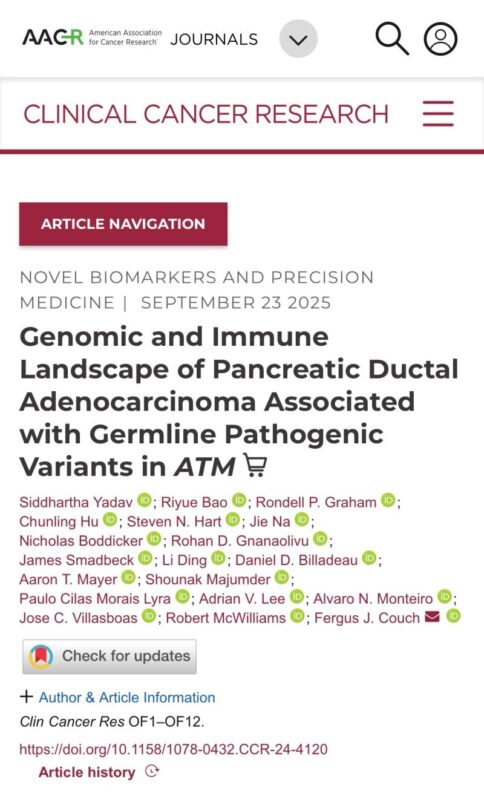
Nelson Dusetti, PhD – Research Director, INSERM; Pancreatic Cancer & Translational Oncology; Co-Founder of Predicting Med
“Toward Precision Chemotherapy for Pancreatic Cancer Guided by Transcriptomic Signatures, published today in UEG Journal, retraces the scientific journey of theranostic prediction in pancreatic ductal adenocarcinoma highlighting the contribution of our institutions, the CRCM – Centre de Recherche en Cancérologie de Marseille and the Institut Paoli-Calmettes (IPC), to this field.
Authored by Brice Chanez, Matthieu Delaye, Nicolas Fraunhoffer, Juan Iovanna, Cindy NEUZILLET, and Nelson Dusetti, this review summarizes the main advances in treatment personalization, from GemPred and GemCore to the AI-assisted Pancreas-View algorithm, and discusses the future of transcriptomic-guided chemotherapy addressing current clinical limitations and ongoing prospective trials such as PACSign01, GemSign01, and NeoPREDICT.”
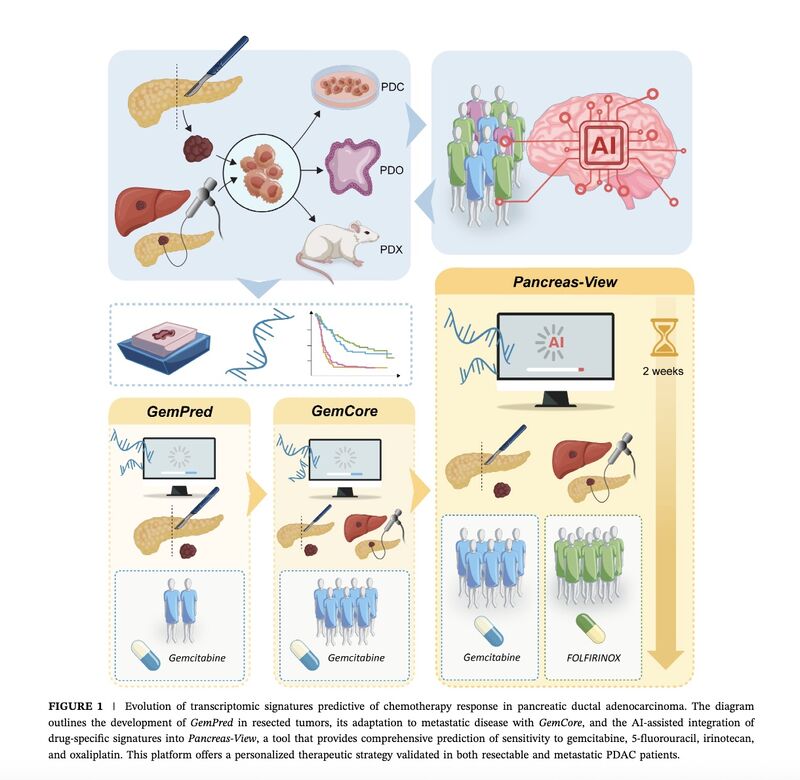
Kennedy Ng, MD – Medical Oncologist, National Cancer Centre Singapore; Founder and Director, TriGen; Clinical Director, Division of Population Health and Integrated Care, Singapore General Hospital
“Happy to share our new publication in ESMO Gastrointestinal Oncology.
‘The impact of socioeconomic status on overall survival in patients with colorectal cancer: a systematic review and meta-analysis.’In this meta-analysis of over 2 million patients across 37 studies, we found that lower income, education, lack of insurance coverage, and neighbourhood socioeconomic status were all independently associated with poorer overall survival in colorectal cancer. These findings highlight how social determinants, beyond biology and treatment, shape cancer outcomes. As clinicians and public health practitioners, we must improve equity in screening, early detection, and access to therapy to improve outcomes for our patients.
Grateful to my co-authors from NCCS, SGH, NUS and Duke-NUS for their collaboration on this work. Iain Tan · Evelyn Wong · Shuting Han · Dawn Chong · Wei Yu · Oliver Anthony · Isaac Seow · Si-Lin.”
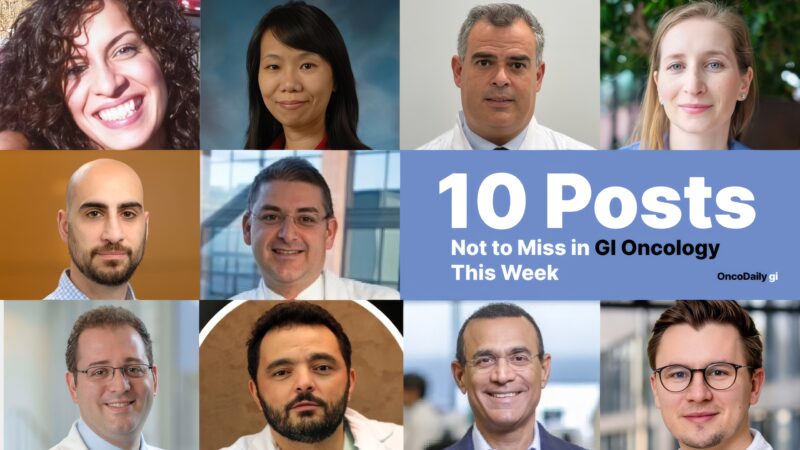
You can read about the 10 Must-Read Posts in GI Oncology from the first week of October on OncoDaily.


